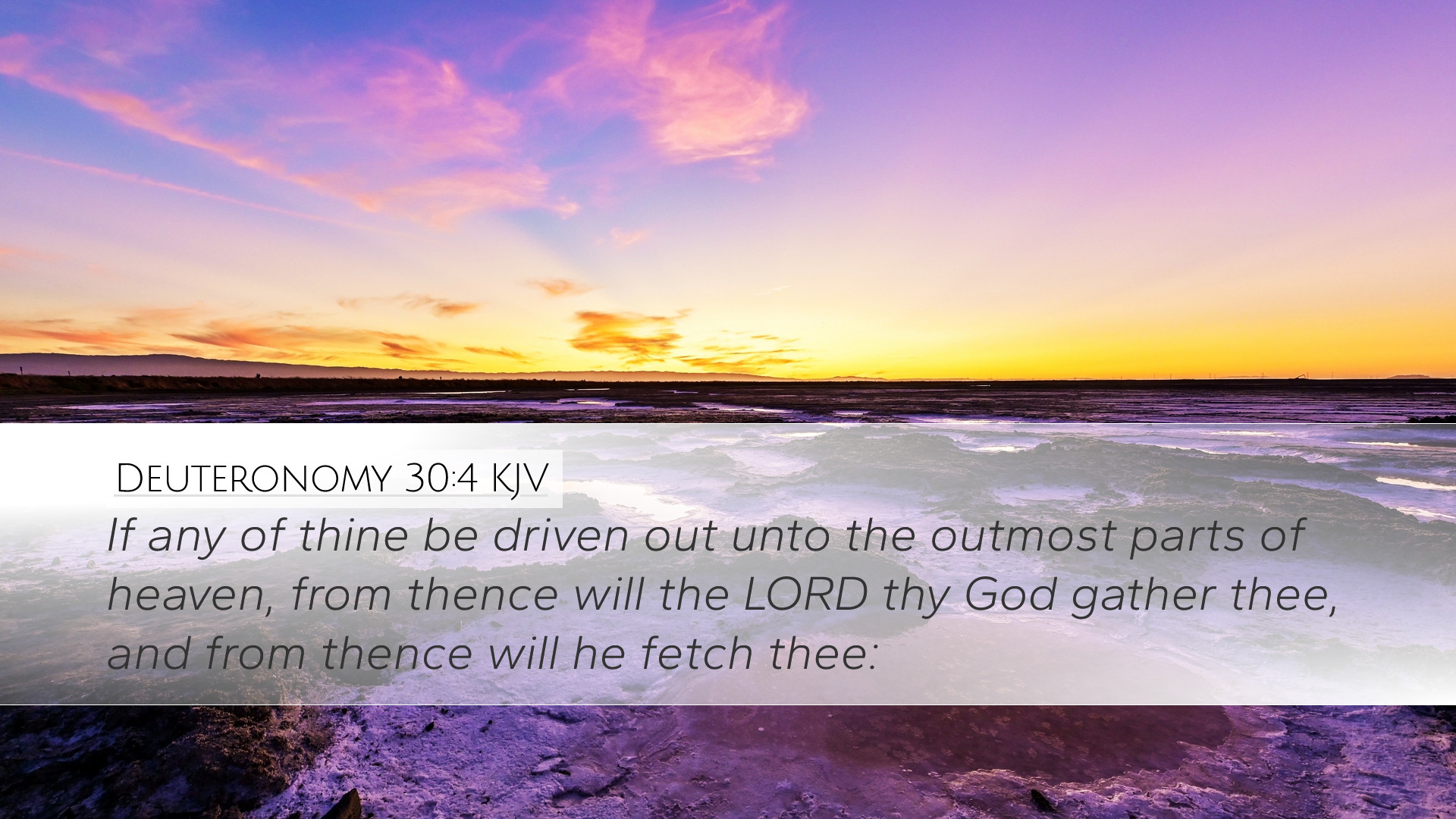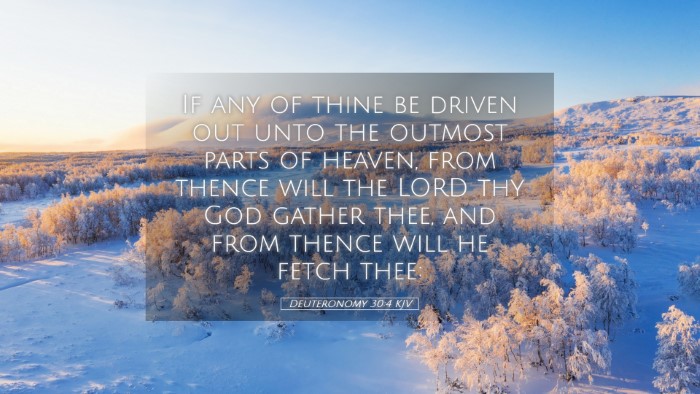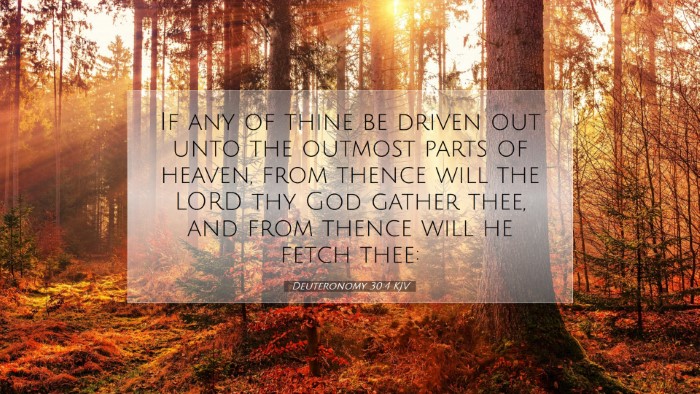Commentary on Deuteronomy 30:4
Deuteronomy 30:4 states:
"If any of thine be driven out unto the outmost parts of heaven, from thence will the LORD thy God gather thee, and from thence will he fetch thee."
This verse is predominantly about hope and restoration, encapsulating God’s promise to His people even in the direst circumstances. It emphasizes His unwavering commitment to gather Israel despite their exile and seemingly distant status.
Contextual Background
Understanding this verse requires an examination of its place within the broader narrative of Deuteronomy. This book, attributed to Moses, serves as a farewell address where he recounts the Law to the Israelites poised to enter the Promised Land. It contains both admonitions and assurances regarding their covenant relationship with God.
Theological Themes
- God's Sovereignty and Mercy: The promise that God will gather His people, even from the furthest parts of heaven, emphasizes His sovereign authority and mercy. No distance, no matter how far, can separate God's people from His love and His divine plan.
- Hope in Restoration: The proclamation provides a source of hope for those facing exile, indicating God's willingness to restore and redeem His people. Matthew Henry remarks on this calling of Israel, interpreting exile as a consequence of sin yet foreshadowing a divine plan for restoration.
- The Covenant Relationship: This covenant reminder highlights that even in suffering and diaspora, God's commitment to His promise remains steadfast. It calls the Israelites to remember their identity and their relationship with God, a theme echoed by Adam Clarke.
Commentary Insights
Matthew Henry’s Commentary
Matthew Henry expounds upon the significance of God's gathering, noting that it shows the compassion of God toward His wayward people. He emphasizes that regardless of how far they stray or how grave their sins may be, the faithful relationship between God and Israel remains intact. Henry posits that it reflects God's eternal purpose, which supersedes human failure.
Albert Barnes’ Notes
Albert Barnes elaborates on the phrase “driven out unto the outmost parts of heaven,” suggesting that it symbolizes the complete disarray and dispersion of the Israelites. He draws attention to the fact that, while their sin might lead them to an abject spiritual state, God's power is such that He can and will reclaim them. Barnes portrays this as an encouragement for those in exile to remain steadfast in faith, knowing that God’s restorative action is not limited by human circumstances.
Adam Clarke’s Commentary
Adam Clarke presents a detailed analysis of the geographical implications of the verse. He asserts that the use of “the outmost parts of heaven” denotes a figurative representation of despair and loss, recounting how even in the darkest moments, God's hand is not shortened. Clarke emphasizes that God's promise transcends physical boundaries and encourages believers to trust in divine authority.
Practical Applications
This verse serves as a reminder for pastors, students, theologians, and scholars that:
- Hope in Exile: Just as Israel was promised restoration, today’s believers can find hope in God's continuous call to return, even after spiritual exile.
- Encouragement in Ministry: Pastors can derive from this text the importance of reaching out to those who may feel estranged from God, as God is attentive to the cries of His people."
- Understanding God’s Nature: This scripture reflects God's merciful nature, which is essential for theological discussions and understanding the character of God throughout biblical history.
Conclusion
Deuteronomy 30:4 encapsulates profound theological truths about God’s faithfulness, love, and the hope of restoration for His people. As we dissect its implications, we affirm not only the historical significance for Israel but also its timeless relevance for all believers. The insights from cherished public domain commentaries enhance our understanding of God’s promises and call us to live in the assurance of His unending mercy and grace.


